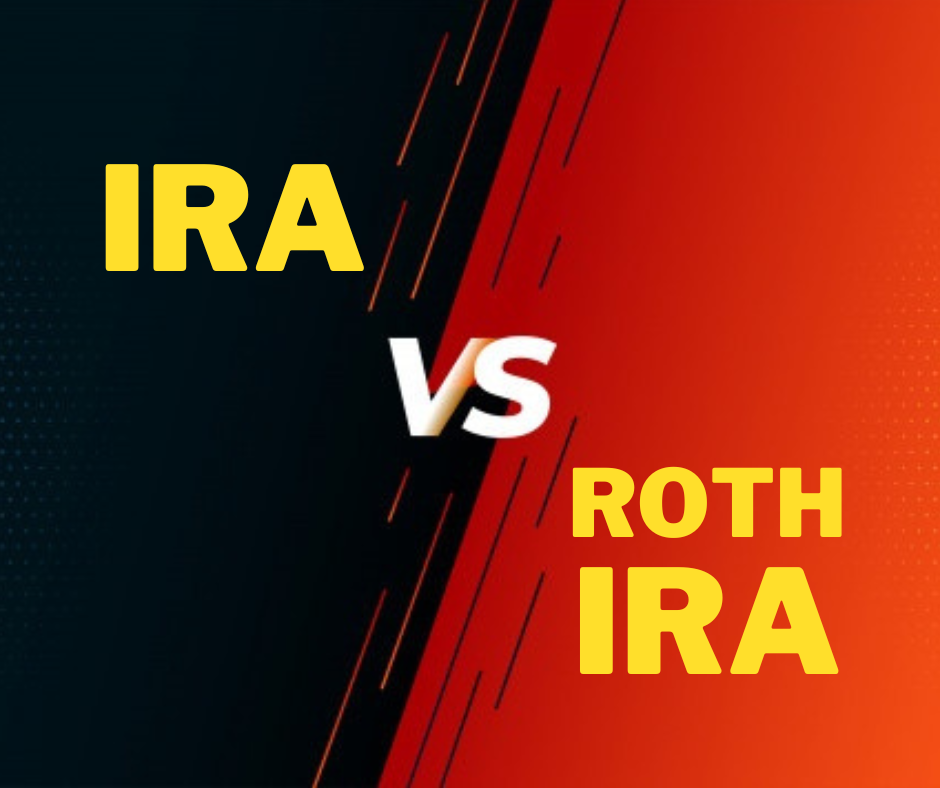What's the difference between an IRA and Roth IRA?

Bottom Line Up Front (BLUF): Both IRAs and Roth IRAs are tax advantaged (vs. investing in a brokerage account). IRAs are tax-deffered (you get a tax write-off this year) but pay taxes on the gains later, while Roth IRAs are taxed now (no tax write-off) but you never pay taxes again on the gains. But Roth IRAs let you withdraw your contributions before retirement without penalties and don’t require mandatory distributions (your money can grow longer).
So, what is the difference between an Individual Retirement Account (IRA) and a Roth IRA?
They are both investment accounts that have special tax rules that will help you keep more of your money for retirement. However, the rules for each are very different. Here are the highlights:
IRA:
- Contributions are tax-deferred. You get a tax deduction for all the money you contribute, making them “tax free”
- Distributions are taxed later. You pay your taxes when you withdraw at retirement. However, this will be at your tax rate at retirement (which for some people, will be lower).
- Penalties if you withdraw before 59.5 years old. The government takes a 10% penalty for all withdrawals before retirement age (59.5 years old).
- Mandatory distributions at 72 years old. Instead of letting your money continue to grow, you will have to start pulling out money from your IRA at age 72, even if you don’t need it. Otherwise, you’ll have to pay a hefty penalty, per the IRS – This is so the government gets to tax your money (as the money is tax deferred).
Roth IRA:
- Contributions are taxed. You do not get a tax deduction for money you contribute
- Distributions are tax free. However, your withdrawals at retirement are not taxed. This includes dividends from stocks and bonds, and all the gains you’ve accumulated.
- You can withdraw contributions tax and penalty free. You can withdraw the money you contributed at any time without taxes or penalties. However, you will be taxed (and possibly penalized 10%) if you withdraw your gains (i.e. anything above the amount you transferred into the account) before retirement, unless it is a special qualified purchase. Schwab breaks down these rules on their website.
- No mandatory distributions. The government already taxed your contributions, so you don’t have to take mandatory distributions on a Roth IRA.
- Income limits. If you make too much money, you can’t contribute to a Roth IRA. The rules are complicated, but as long as you make $129,000 (if single) or $204,000 (if married who file joint taxes) as of 2022, you should be fine. Check the IRS website for details.
Note: Investments in all of your IRAs and Roth IRAs in one year can be up to a maximum of $6,000 (as of 2022). There are extra rules (such as for married couples and those over 50 years old), so make sure you look into them if you want to invest more than this amount.
Because military members, especially enlisted members, are often in a very low tax bracket, a Roth IRA can make the most sense. If you don’t know which to pick, pick the Roth IRA (if you meet the income limits) for now.